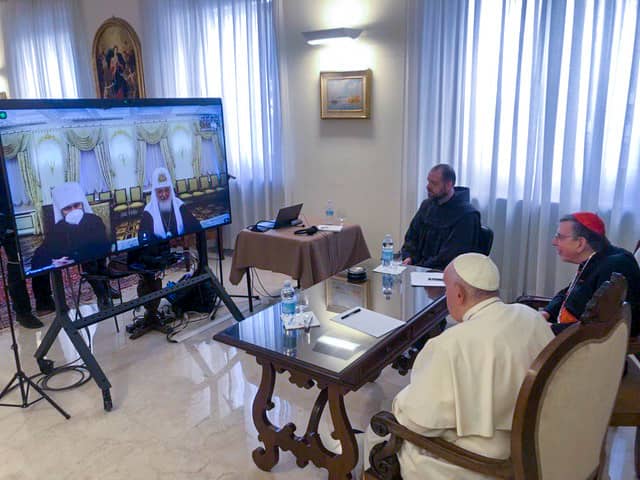LEICESTER, United Kingdom – As the British government continues frantically to try to avoid a no-deal Brexit on March 29, the Catholic Church has been cautious about commenting on the country potentially crashing out of the European Union.
Last month, the Parliament rejected Prime Minister Theresa May’s proposed Brexit deal with the EU, and the government is struggling to come up with a new plan that will be acceptable to both Westminster and Brussels.
Church leaders don’t want to be seen as interfering in a political question, especially since Brexit has divided Catholics as much as the rest of the country.
Slightly less than 52 percent of voters chose to leave the European bloc in a Jun. 23, 2016, referendum. According to the London School of Economics, a slightly higher percentage of Catholics – 55 percent – voted Leave. (Anglicans were most in favor of leaving, with nearly two-thirds voting Leave, while members of non-Christian minorities and non-believers tended to vote Remain.)
RELATED: English bishop says Britain in ‘amazing political mess’ over Brexit
The slight bump Catholics have over the general population in favoring exiting the EU is more likely explained by geography than theology – Catholics are overrepresented in the North of England, which supported Brexit in larger numbers than the South.
It is difficult to ascertain “Catholic opinion” in the UK. The bishops are in three different bishops’ conferences, for a start: Catholic Bishops’ Conference of England and Wales, Catholic Bishops’ Conference of Scotland, and the bishops in Northern Ireland belong to the all-island Irish Catholic Bishops’ Conference. Although Britain as a whole supported Brexit in the referendum, both Scotland and Northern Ireland voted Remain.
If you were to poll the country’s bishops, the vast majority would probably tell you they think leaving the EU is a bad idea (an opinion which would also be held at the Vatican, which has supported the European Union from the beginning), but they are keeping their cards close to the vest in their official statements about Brexit.
However, as the date of Brexit gets closer, Church leaders have been highlighting some concerns about the process.
1) The Church wants the UK to stay engaged in Europe.
Even though Britain might be leaving the European Union, it still remains a member of the Council of Europe, which encompasses the European Court of Human Rights and the Moneyval financial crimes office; the Organization for Security and Co-operation in Europe; and NATO.
Speaking in 2017, Cardinal Vincent Nichols, the president of the English and Welsh bishops’ conference, said that although the UK is leaving the EU, “England does not want to leave Europe.”
2) The bishops have been vocal about protecting the rights of EU citizens currently living in the UK.
EU citizens can move, live, and work freely in all EU countries, and there are an estimated 3.7 million Europeans in the UK.
About one million are from Poland, and a significant portion of the rest come from other Catholic-majority countries such as Spain, Italy, and France.
The bishops opposed a now-scrapped measure to charge these EU nationals a fee to achieve “settled status” allowing them to remain in the country, and have called on the government to honor promises made not to burden EU residents in the UK, many of whom have lived in Britain for decades.
The bishops have also complained about the increase of hate crimes in the country since the referendum. Opposition to immigration was cited as a primary reason for people voting Leave, and xenophobic comments and even physical attacks have been reported against EU nationals living in the UK, especially those from Eastern Europe.
3) The Church, especially in Northern Ireland, has been fearful about what effect Brexit will have on the Good Friday Agreement which ended the “Troubles” in Ireland.
The peace deal was to a large degree underpinned by the UK and Ireland’s mutual EU membership, which provided a common European citizenship and customs union. One of the key components of the Good Friday agreement was an open border between north and south.
The “backstop” to guarantee an open border was the chief stumbling block for Brexit-supporters when the prime minster’s plan was rejected by parliament on Jan. 15.
This plan would keep the UK in the EU customs union for the foreseeable future, and even eventually lead to Northern Ireland alone being in the customs union, effectively moving the EU border to the Irish Sea.
The Northern Ireland unionist DUP party – which props up the ruling Conservative Party – especially objected to the plan because they said it weakened the union between Northern Ireland and Great Britain.
With fewer than 60 days to go, Church leaders are getting nervous that these issues will be lost in the chaos of last-minute wheeling and dealing.
This was summarized by Archbishop Eamon Martin of Armagh, which straddles the border between the Republic of Ireland and Northern Ireland, in an interview with iCatholic.
“I would ask this question: We are only seven or eight weeks from the proposed date of exit. I wonder are we really thinking enough about the impact on people on the ground?” Martin asked.
“This is a time for us to talk with each other and not to talk at each other about Brexit,” he added.














